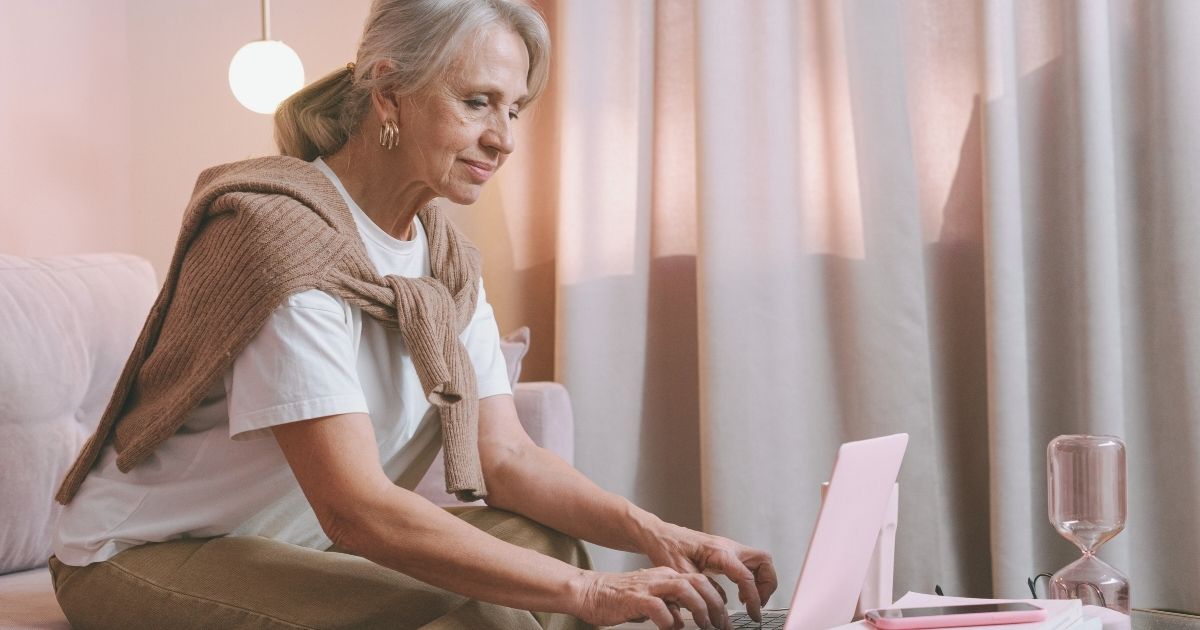Bali belly affects up to 70% of visitors to Indonesia, making it one of the most common health issues digital nomads face while working remotely from this tropical paradise. This notorious traveler’s diarrhea can derail your productivity, comfort, and entire nomadic experience with sudden onset symptoms including stomach cramps, nausea, and frequent bathroom trips that can last several days.
As a digital nomad, you can’t afford to be sidelined by preventable health issues. Understanding how to avoid Bali belly is essential for maintaining your work schedule, meeting client deadlines, and enjoying your time in Indonesia without unnecessary interruptions. This comprehensive guide provides proven prevention strategies specifically tailored for remote workers who need to stay productive while exploring Bali’s incredible culture and landscapes.
Understanding Bali belly: what digital nomads need to know

Bali belly is essentially traveler’s diarrhea—a gastrointestinal condition that affects tourists visiting Bali and similar tropical destinations. It’s characterized by the sudden onset of diarrhea, stomach cramps, nausea, and sometimes vomiting that can last anywhere from 24 hours to several days.
The main culprits behind Bali belly are bacterial infections, particularly E. coli, along with other bacteria like Salmonella, Campylobacter, and Shigella. Viral infections and parasites can also contribute to the condition. For digital nomads whose livelihood depends on consistent productivity, even a few days of illness can derail important deadlines and client relationships.
💡 Did you know? The term “Bali belly” is somewhat unfair since similar conditions affect travelers worldwide, from “Delhi belly” in India to “Montezuma’s revenge” in Mexico. The key to prevention remains the same regardless of your destination.
Why digital nomads are at higher risk
Digital nomads face unique challenges that can increase their vulnerability to Bali belly. Extended stays mean more exposure to local bacteria, while the pressure to explore local food culture for authentic experiences can sometimes override caution. Additionally, the stress of managing work deadlines while traveling can weaken your immune system, making you more susceptible to infections.
Understanding how to avoid Bali belly becomes even more critical when you consider that remote workers often lack the luxury of taking several sick days without consequences. Your laptop won’t cure itself, and client calls won’t reschedule themselves because you’re dealing with stomach issues.
Essential food safety strategies to prevent Bali belly

The foundation of how to avoid Bali belly lies in smart food choices and eating habits. Prevention starts with sticking to bottled water, avoiding risky food options, and prioritizing hygiene.
The golden rules of safe eating in Bali
- Choose hot, fresh food: opt for reputable restaurants with good hygiene practices and choose foods that are freshly cooked and served hot. Street food can be safe if it’s popular with locals and prepared fresh in front of you. Look for high turnover—if locals are lining up, it’s usually a good sign.
- Avoid risky foods: steer clear of raw or undercooked dishes, especially salads and sushi, unless you’re dining at a trusted restaurant. Be particularly cautious with seafood, unpasteurized dairy products, and anything that’s been sitting out at room temperature.
- Peel your own fruits: if you want fresh fruit, choose items you can peel yourself like bananas, mangoes, and oranges. Washing may not suffice; peeling adds an extra layer of protection.
🌟 Pro tip: when in doubt about food safety, follow the local breakfast rule—eat where you see Indonesian families having their morning meal. Local families won’t risk getting sick either!
Water safety: your first line of defense
Tap water in Bali isn’t safe for drinking. Use bottled or filtered water, not just for drinking but also for brushing your teeth and washing fresh produce. This extends to ice cubes—unless you’re in a high-end resort or restaurant, ice is often made using tap water.
Always check that bottled water seals are unbroken, and don’t leave open bottles sitting around without caps, as they can become contaminated. For digital nomads working long hours, having a reliable supply of safe drinking water is essential for maintaining both health and productivity.
Digital nomad-specific prevention strategies

As a location-independent professional, you need strategies tailored to your unique lifestyle and work demands.
Probiotics: your invisible health insurance
Begin taking probiotics a few days before your trip and continue throughout your stay. Probiotics help strengthen gut health and build resilience against harmful bacteria. For digital nomads planning extended stays, this becomes particularly important as your body needs time to adapt to new microbial environments.
Choose a high-quality probiotic supplement with multiple strains, or incorporate fermented foods like yogurt (from reputable sources), kefir, or local fermented vegetables into your diet. This investment in gut health can prevent weeks of productivity loss.
Hygiene habits for the modern nomad
Wash your hands frequently and carry hand sanitizer. Hygiene plays a major role in preventing bacterial infections. As someone constantly working on laptops, touching doorknobs, and shaking hands in coworking spaces, your hands are major transmission vectors.
Establish a routine: sanitize hands before eating, after using public bathrooms, and after handling money. Keep sanitizer in your laptop bag and use it regularly throughout your workday. Consider carrying wet wipes for situations where hand sanitizer isn’t enough.
💡 Did you know? Most cases of traveler’s diarrhea are transmitted through the fecal-oral route, meaning contaminated hands are often the culprit rather than just contaminated food.
Technology and connectivity for health management
Staying connected isn’t just about work productivity—it’s crucial for managing your health while traveling. When you’re focused on how to avoid Bali belly, having reliable internet access means you can quickly research medical facilities, communicate with insurance providers, or consult with online healthcare services when needed.
Consider securing dependable connectivity with Holafly’s eSIM for Indonesia, ensuring you can access health information, map nearby pharmacies, or contact emergency services without worrying about local SIM card compatibility issues. Reliable connectivity becomes especially important if you need to manage any health concerns while maintaining your work responsibilities.
Essential health apps for digital nomads
Download offline maps with hospital and pharmacy locations marked. Keep digital copies of your health insurance information and emergency contacts in easily accessible cloud storage. Having these resources readily available can save precious time if you do encounter health issues despite your best prevention efforts.
What to do if prevention isn’t enough

Despite your best efforts to avoid Bali belly, sometimes it still happens. Don’t panic. Bali belly is super common and usually short-lived. Rest and hydrate (sip water or coconut water slowly). Avoid dairy, spicy food, and alcohol. Stick to bland food like rice, toast, and bananas.
Digital nomad sick day management
When illness strikes, you need a plan that protects both your health and your professional obligations. Communicate with clients about potential delays as early as possible. Keep simple, easy-to-digest foods stocked in your accommodation—crackers, bananas, and oral rehydration salts can be lifesavers.
If symptoms persist beyond 48 hours or get severe, see a local doctor or pharmacist. Indonesia has excellent healthcare facilities, particularly in tourist areas, and many doctors speak English.
🌟 Pro tip: many coworking spaces in Bali have first aid kits and can recommend nearby clinics. Don’t hesitate to ask fellow nomads for recommendations—the community is usually very supportive during health emergencies.
When to seek professional help
You should seek medical attention if you have been sick for more than 5 days, have severe belly pain, have bloody diarrhea, cannot eat or drink anything, or show signs of severe dehydration. For digital nomads, it’s better to seek help sooner rather than later to minimize the impact on work commitments.
Building long-term health habits for nomadic life

Learning how to avoid Bali belly is just one part of maintaining your health as a digital nomad. Consider developing comprehensive health strategies that work across different destinations and cultures.
Invest in proper travel health insurance that covers both emergency treatment and routine care. Many nomads find that having reliable coverage gives them peace of mind to focus on their work rather than constantly worrying about potential medical costs. Understanding visa requirements is also crucial for longer stays—learn about the digital nomad visa in Indonesia to ensure you can legally work while staying healthy and productive.
Creating your personal health protocol
Develop a standardized approach to health and safety that you can implement in any new destination. This includes researching local healthcare options before arrival, understanding common health risks in each region, and maintaining a travel health kit with essential medications and supplies.
💡 Did you know? Some digital nomads schedule regular health check-ups in countries known for medical tourism, like Thailand or Malaysia, combining health maintenance with their travel lifestyle.
Final thoughts about Bali belly
Mastering how to avoid Bali belly isn’t just about preventing an unpleasant few days—it’s about protecting your ability to work, explore, and thrive as a digital nomad. By following smart food safety practices, maintaining good hygiene, staying connected with reliable technology, and having a plan for when things go wrong, you can significantly reduce your risk of digestive issues.
Remember that prevention is always better than treatment, especially when your livelihood depends on consistent productivity. The strategies outlined in this guide will serve you well not just in Bali, but in any destination where you choose to work and travel.
Ready to explore Indonesia with confidence? Whether you’re planning your first nomadic adventure or you’re a seasoned traveler looking for comprehensive health guidance, explore our detailed resources on accommodation for digital nomads to find the best places to stay while maintaining your health and productivity in Bali.
Nomada is here to support your digital nomad journey with practical guides, health resources, and expert advice to keep you productive and healthy wherever your work takes you 👉
Frequently asked questions about Bali belly prevention
While these prevention strategies significantly reduce your risk, there’s no 100% guarantee against Bali belly. Even locals occasionally experience digestive issues. The key is minimizing risk through smart choices and being prepared to manage symptoms if they occur.
Most people’s digestive systems begin adapting to new bacteria within 3-7 days, though this varies significantly between individuals. Some digital nomads report feeling more comfortable with local food after 2-3 weeks of careful eating.
Not necessarily. High-turnover street vendors with food cooked fresh and hot can be quite safe. Look for places popular with locals, avoid anything that’s been sitting out, and trust your instincts about cleanliness and freshness.
Bali belly is typically milder and shorter-lived than severe food poisoning. It usually involves loose stools, mild cramping, and nausea lasting 1-3 days. Severe food poisoning involves high fever, bloody stools, and severe dehydration requiring immediate medical attention.
Higher-end hotels and resorts generally maintain better food safety standards, but they’re not immune to issues. The same precautions apply—choose hot, freshly prepared food and be cautious with salads, raw foods, and items that might have been sitting out.
Yes, chronic stress can weaken your immune system and make you more vulnerable to infections. Managing work stress through proper rest, exercise, and work-life balance can help maintain your body’s natural defenses against harmful bacteria.




